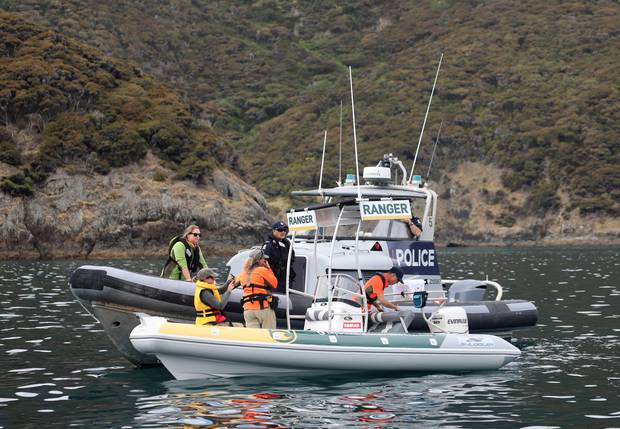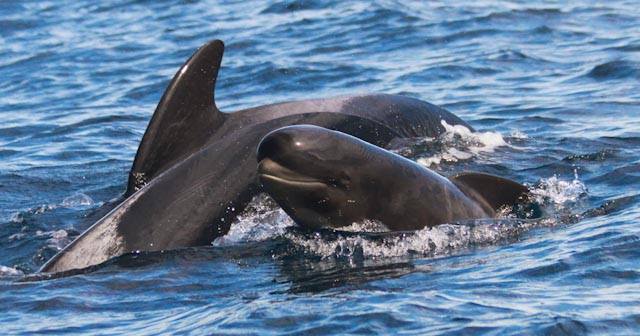TriOceans helps pilot whales - NZ herald article
TriOceans helps DOC and Maritime Police with crowd control and monitoring of a pregnant pilot whale as she gives birth.
Crowd control for a pilot whale giving birth was a first for Sergeant Garry Larsen who is patrolling the Bay of Islands as part of the Police Maritime Unit.
And the experienced officer with 20 years in the maritime unit said the “unique callout” was definitely a better work story.
A team of officers have been in the Bay of Islands over the busy Christmas and New Year period carrying out routine tasks such as checking for lifejackets and warning boaties about their speed. But it seems their brief has been extended to crowd control for birthing whales.

A pod of about 20 pilot whales swam into Deep Water Cove, 6km southwest from Cape Brett in the Bay of Islands, about 8am on Wednesday.
At first boaties in the area, where the Canterbury wreck is located, thought the pod was about to strand.
The police patrol and Department of Conservation staff were contacted and were on the scene about 10am.
“One of the whales was calving so we had to keep the boaties away. We had to stop one vessel heading over to the pod and getting too close and direct them away,” Larsen said.
Dr Cat Peters, a marine mammal ranger based in the Bay of Islands, said the pod were displaying behaviours consistent with stranding as they were bunching together and rolling on their backs.
But on closer inspection they discovered one of the females was calving.
“We witnessed the birth and got to see the baby while they hung around for about half an hour after. Then they headed at some speed out to the deep water.”
The distance is 50m from pilot whales and at least 200m away from any baleen or sperm whale mother and calf.
While not on whale duties the police team, in a rigid-hulled inflatable boat usually based in Auckland, have been checking boaties have been wearing lifejackets and keeping to speed limits.




Leave a Reply
Want to join the discussion?Feel free to contribute!